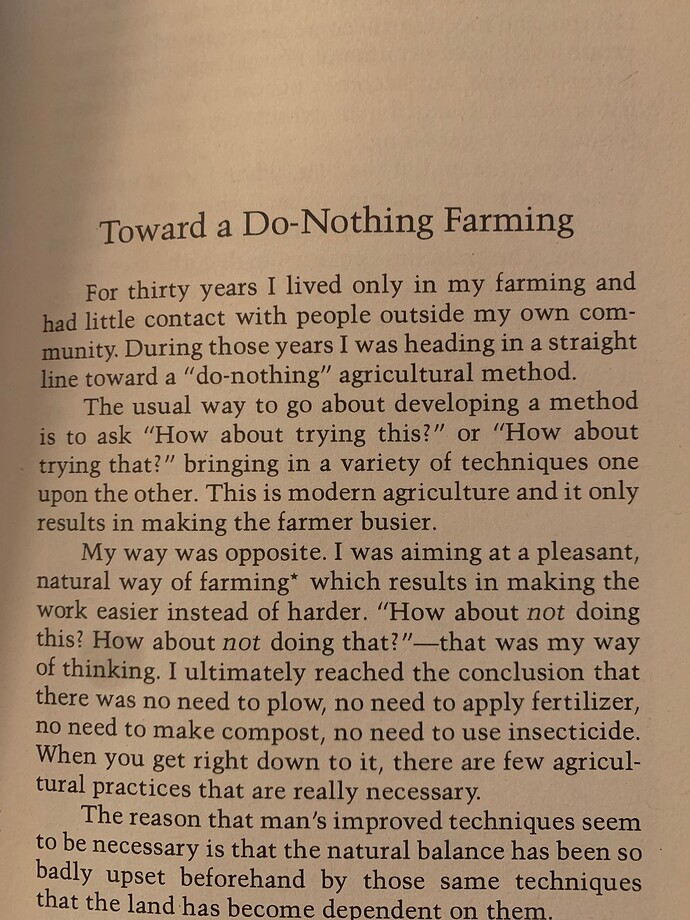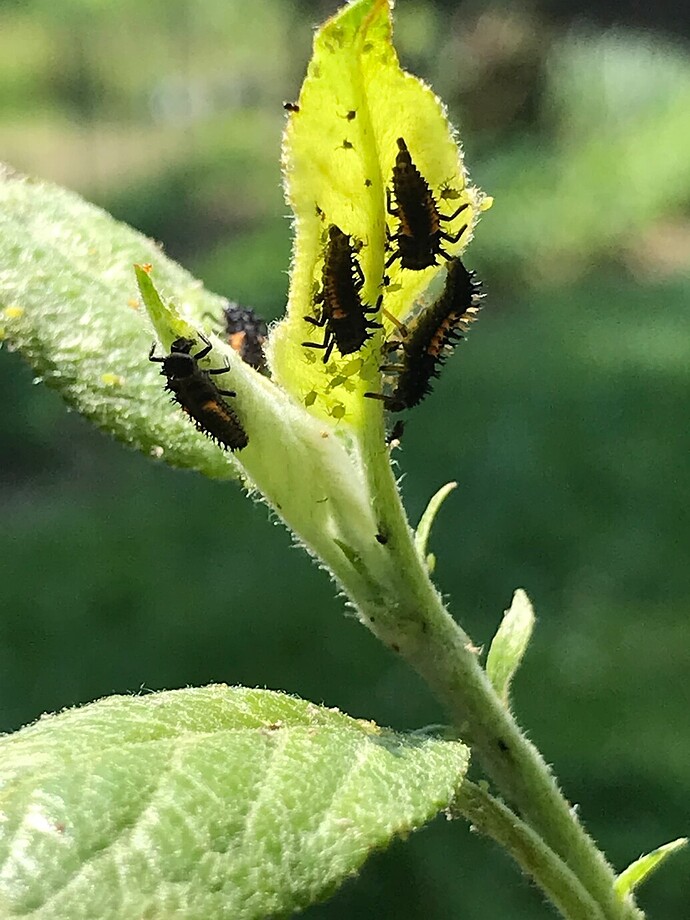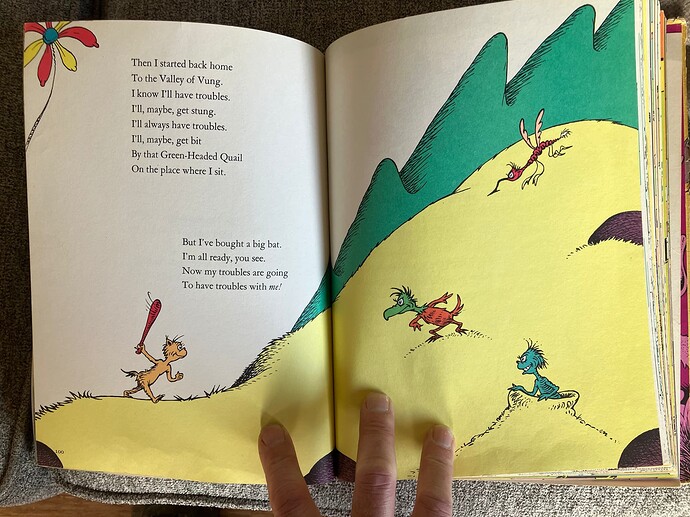I was reading through TNhunter’s topic about forest soil and I was going to reply but I figured I’d start my own thread and share my thoughts.
I’m sure what I will say most won’t agree with on here but we all do things our own way and this is my way so I’ll share. I don’t care that people will disagree with me.
I try to do things as naturally as possible. I try not to fight nature with guns blazing. The idea of killing amanita fungus with chemicals in my soil is sacrilege to me. Now that is no judgement or condemnation on anyone else but to me that’s what it is.
A few years ago I had a pretty bad infestation of aphids… It kinda hurt me to see them all over my elders, plum, cherry, and roses. I didn’t do anything to stop them though. Ever since then I see aphids every year but they are always kept in check by the ladybugs. I mean when I tell you the following year I had ladybugs I mean they were everywhere and ever since they are permanent residents.
I used to kill the slugs with pellets. I stopped a couple years ago. I see some toads around, and one garder snake from time to time. I’m just waiting for more to come and I know they will because they got plenty os good slugs around here to eat.
Two years ago I sat in my garden watching house sparrows (which are an invasive species) picking Japanese beatles (also invasive) off of my cherry trees and roses. The funny thing about that was that My Wife at the time was in the Connecticut Master Gardener program and someone very smart there told her that “wasn’t possible because they don’t have natural predators here”. Hmm well nature seems to evolve eh who would have known.
We all grew up being told germs are bad. We don’t even know what the chemical makeup of the stuff we spray on our counters is to kill so called germs, nope that’s trade secrets. Well ya know what kind of germs are on our counters and in our air? Want to make sourdough or kimchi, or natto, or kombucha, or beer, wine or vinegar… Yes it’s all there.
Oh and how they are selling probiotics nowadays huh? All the research they are doing with these microbes and finding how good they are for us…
There’s always a few bad actors right? Well kill them all!
How about these new inoculants and sprays the chemical companies are selling to farmers… They are patenting and selling back the same microbes and funguses that were originally in the soil before we were told to till & plow and expose them to ultraviolet rays and kill off all those good microbes so we could be good consumers and buy chemical fertilizers.
I like to grow fruit, flowers, veggies, basically everything. I also like to grow cacti. It always amazes me how a cactus can grow so big out of a crack in a rock… How is that possible without nutrients? Well even in that harsh environment there are microbes that grow inside of the plant’s roots and out into the cracks and they mine those rocks and excrete acids to break down and transport the nutes back to the plant and the plant shares it’s sugar with those microbes in return.
I get a lot of wildlife eating my stuff, but they don’t have American Chestnuts anymore or a lot of other things and they got big metal cars and trucks zig zagging all around them so I can afford to lose a bit to them. I keep planting stuff specifically for them too… I think if all the people who went to the nurseries and big box stores put a little more awareness into what plants are good host plants all the wildlife would have plenty to eat.
I see on here plenty of people say you can’t grow fruit without spraying, that’s just not true. Some years you lose this or that, some years you lose this and that, but if you grow enough stuff there’s always a good harvest.
![]()
![]()
![]()



